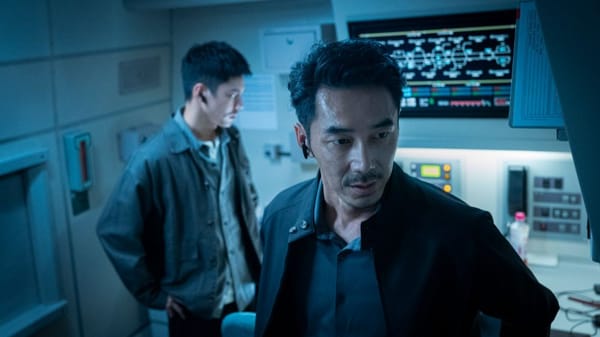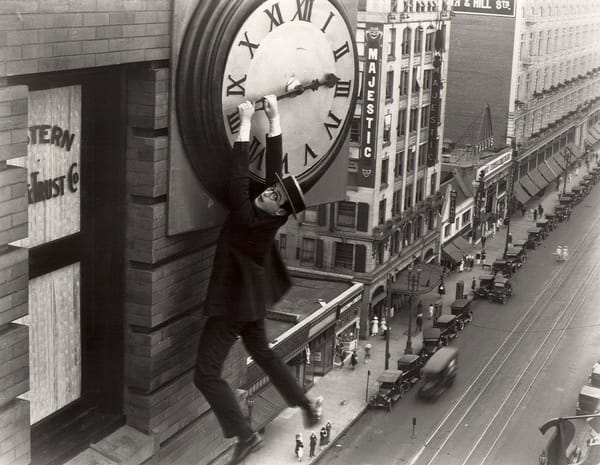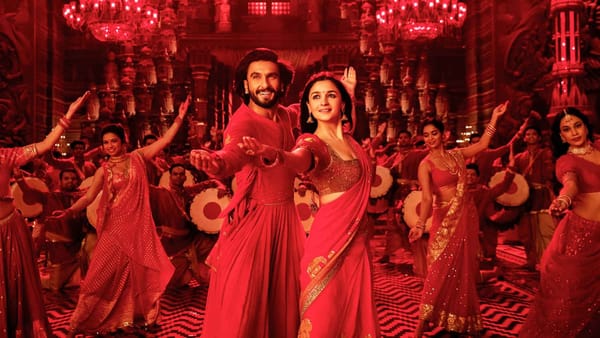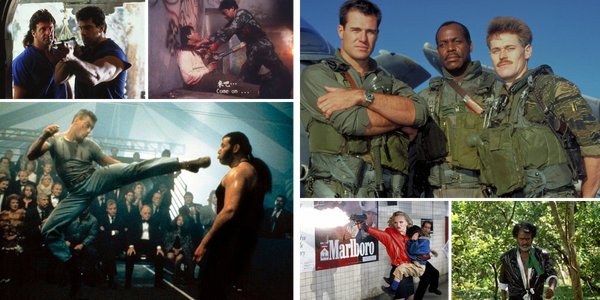Tron: Ares writer Jesse Wigutow talks sci-fi, Daredevil, and the scriptwriting process
The screenwriter shares some of his influences for Tron: Ares and what to expect from the next season of Daredevil
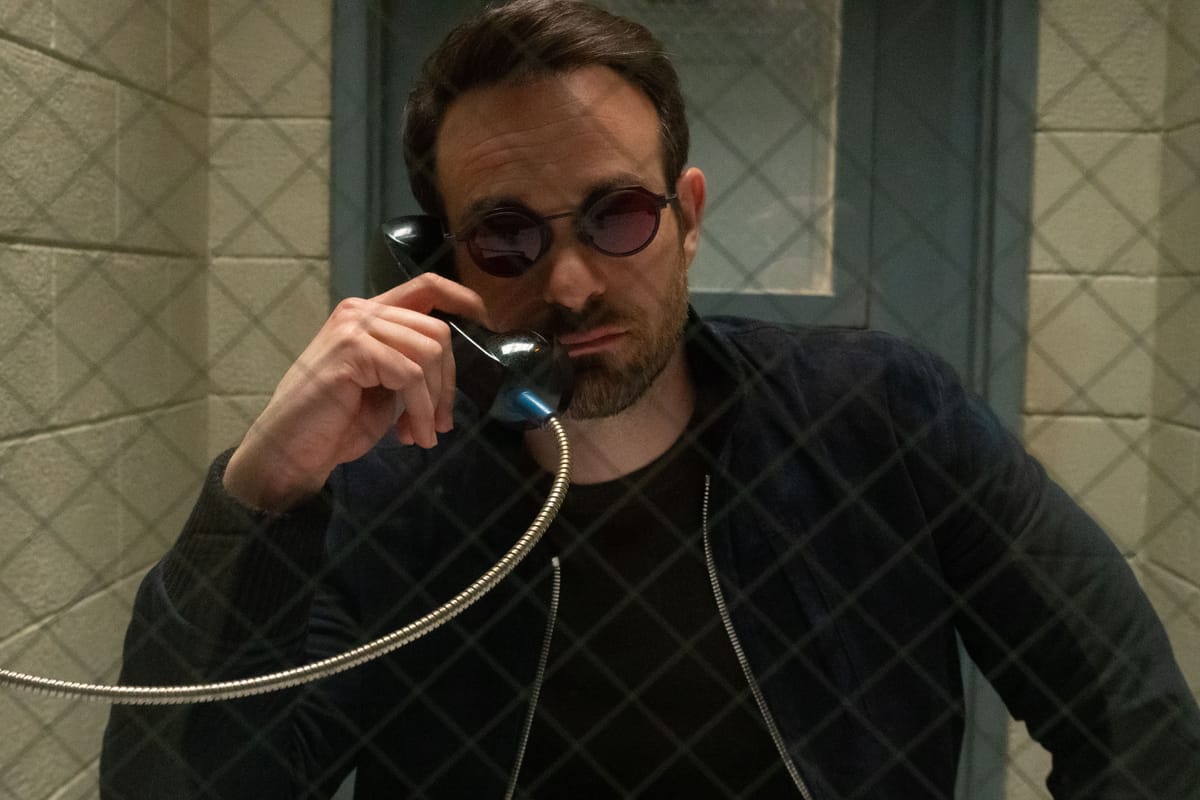
Veteran screenwriter Jesse Wigutow has worked with almost every major studio in Hollywood, but until recently, most of it has been uncredited. That all changed after Wigutow served as a consulting producer on season one of Daredevil: Born Again, writing two episodes, and then penned the screenplay for the upcoming Tron: Ares, which is now in theaters.
I spoke with Wigutow about his career, his writing process, coming to sci-fi late, what he wanted to explore in Ares, and what people can expect from season 2 of Born Again.
This interview has been lightly edited for length and clarity.

Do you consider yourself a sci-fi person? How’d you come to the genre?
I came to sci-fi a little bit late in the game. I wouldn't say naturally, as a writer and artist walking through the world, sci-fi was my genre, so to speak.I've always been more of a drama character writer. And there was this real shift in the industry about 15, 20 years ago where IP obviously exploded, and a lot of it had a kind of sci fi-angle to it. There was this sense from the industry of, let's find authentic voices who write real characters and relationships, and marry them to these big properties. And because the properties are going to sell in and of themselves, or hopefully anyways, let's make them as good as possible. And so my career, it’s been a little bit of follow the wheel, like water, go where it flows. It’s been almost 20 years now of working – not exclusively, but often – in this space, and trying to bring humanity and character and smaller moments to really big canvases. In that time, I've started to really appreciate the genre.
What’s different for you as a writer about writing a script for a sci-fi project instead of a more grounded drama?
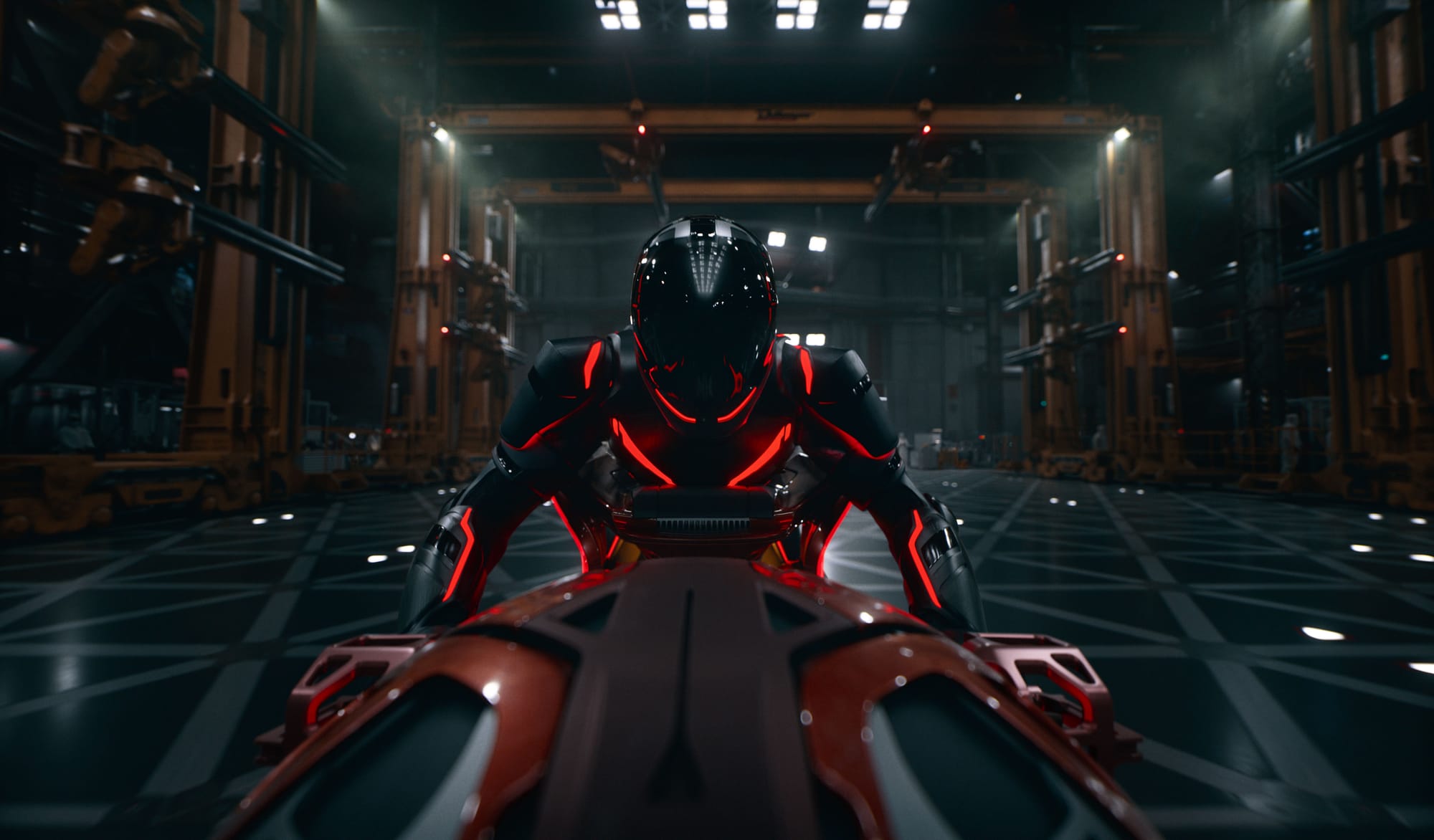
What's interesting about the sci-fi space, and particularly the ones that I've worked on that come with this kind of IP, is there is a little bit of a blueprint. There are rules of the world already established, and there's this mandate to create a compelling and also fast-moving story that holds your attention and asks these provocative questions, but all embedded, almost Trojan-horsed, into a human story. Part of the challenge, and I really enjoy this, is identifying the moments that the real estate allows for me to breathe real life into. How much of that can I do in these moments? And does it add up to something that's memorable? That's really the challenge.
You had already written for Tron: Legacy, so you had been a part of this franchise world already. When did you first see the original Tron? What do you like about the world of it?
I remember being at sleepaway camp when Tron, the original, was released. They took my bunk into a small town to go see it, and it was unlike anything I've ever seen before. It's interesting to see it now. It's so of its time. The evolution is bananas from then to now. It's just a whole other conversation, literally, but at the time it was super groundbreaking. I was a Pac-Man nerd and a Gorf nerd and a Space Invaders nerd, and Tron felt like it was in that vein, but there was a story inside of it. When we’d go to Pizza Hut, they’d have those tabletop Pac-Man games, which were always super fun. Tron felt like you were actually getting to enter into one of those. When I was 10, 11 years old, it was pretty transformative.
This time around, you’re a credited writer on Tron: Ares. What did that change in the process itself for you, versus Legacy?
When I came into Legacy, I was kind of a friend of the family in terms of the people at Disney, the producers, the director. They wanted, at the time, some very specific work done. It kind of grew from there. But it was not my movie, you know, it was already on its way. And kudos to them. I really appreciated the writers and the work they'd done already that was making things more sophisticated in certain ways, or trying to develop character with greater depth. Ares was from the ground up, and it was much more satisfying in that regard, and also more challenging.
What was most important to you about this being your own project, and what did you want to explore?
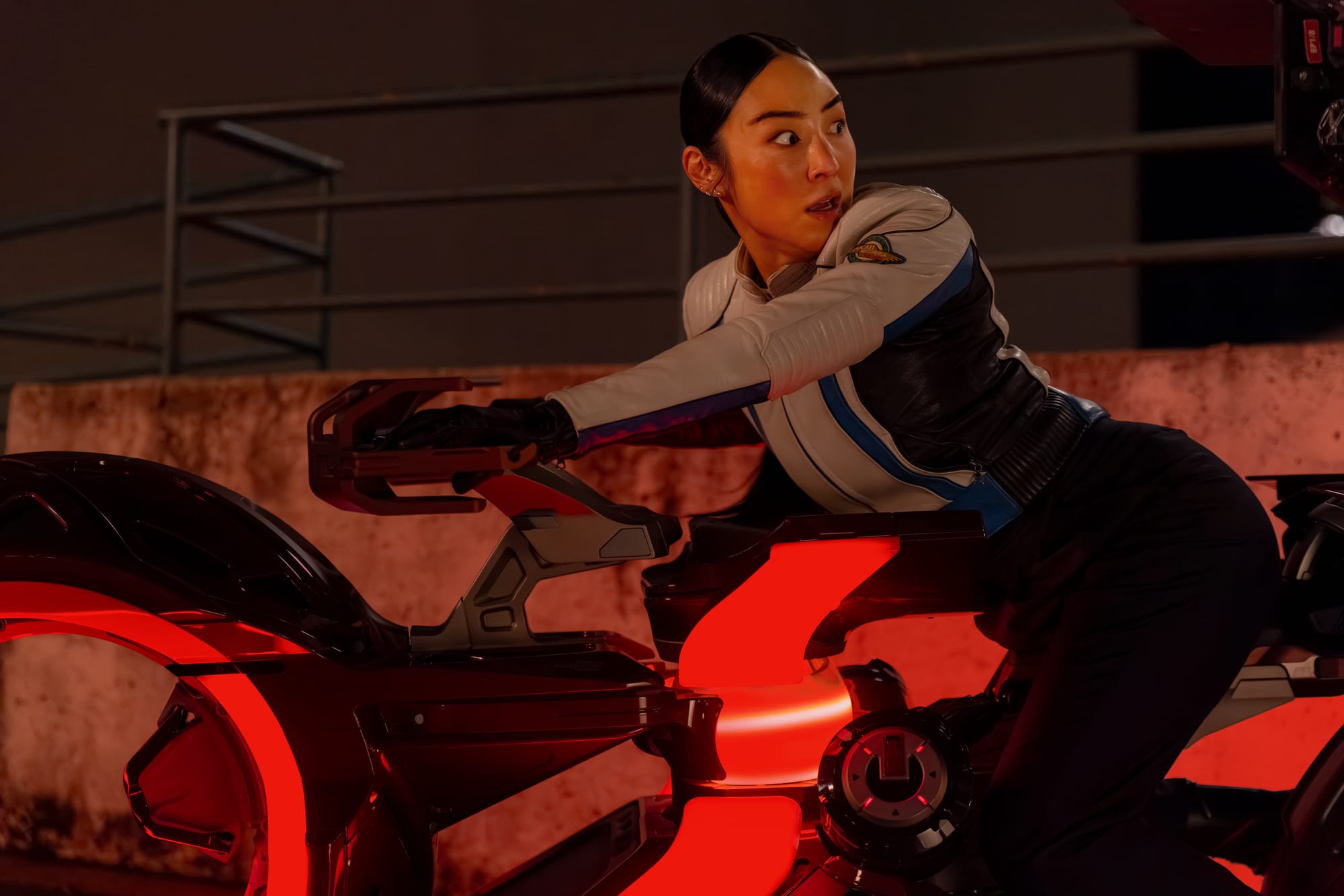
Technology has evolved dramatically since we started. We’ve been chasing it, it's been chasing us. And it started off as this cerebral premise almost, although not in the programming space at the time, it was not a tangible, public sphere thing that it's become today with ChatGPT. But I think at its core, it’s this question of what makes someone or something human. Where does the humanity begin? was very much something I was interested in exploring. And I think that question still lives in the film today.
When you get an assignment like this, what are your first steps?
Good question, vague answer: Everything, everywhere, all at once. I try to deluge myself with like-minded movies and stories to an extent, and then you stop, and then you’ve got to do your own work. Sometimes music can be helpful. I really have done a 180 in my career from the beginning, in terms of outlining and trying to write out the blueprint for the film, and getting a sense of where's the middle, where's the end? What's the kind of green light at the end of the dock that I'm chasing? It can change. It can evolve, and in a way, hopefully it does. It means you're discovering something, but without it, you can feel really lost really quickly.
What were some of the like-minded movies and stories you took in for Ares?
At the beginning, it was Blade Runner. Terminator was also definitely an influence for me, both because of my age, but also there are similarities. Even from Terminator to T2, there’s this explosive acceleration of learning that you see in programming today. That’s evidenced in this film in a way that Terminator could never understand. That was very much part of it.
You’ve been able to work on a lot of franchises in your career. Is there a sandbox you’ve wanted to play in that you haven’t had the opportunity to yet?
Man, espionage.
What are some of your favorites?
There’s just something so cool, so fun about the genre. I go back to From Russia With Love. Bond’s a brand at this point, and a little silly at times, but also still awesome. But really, for me, it’s Jason Bourne. I still think about that character almost daily, and as I’ve matured and grown up in the industry, recognizing the enormity of that franchise driven by this single question of identity, it's really unique, and I think really special, and something I reference almost always.
Is there anything you are able to tease about Daredevil: Born Again season two?
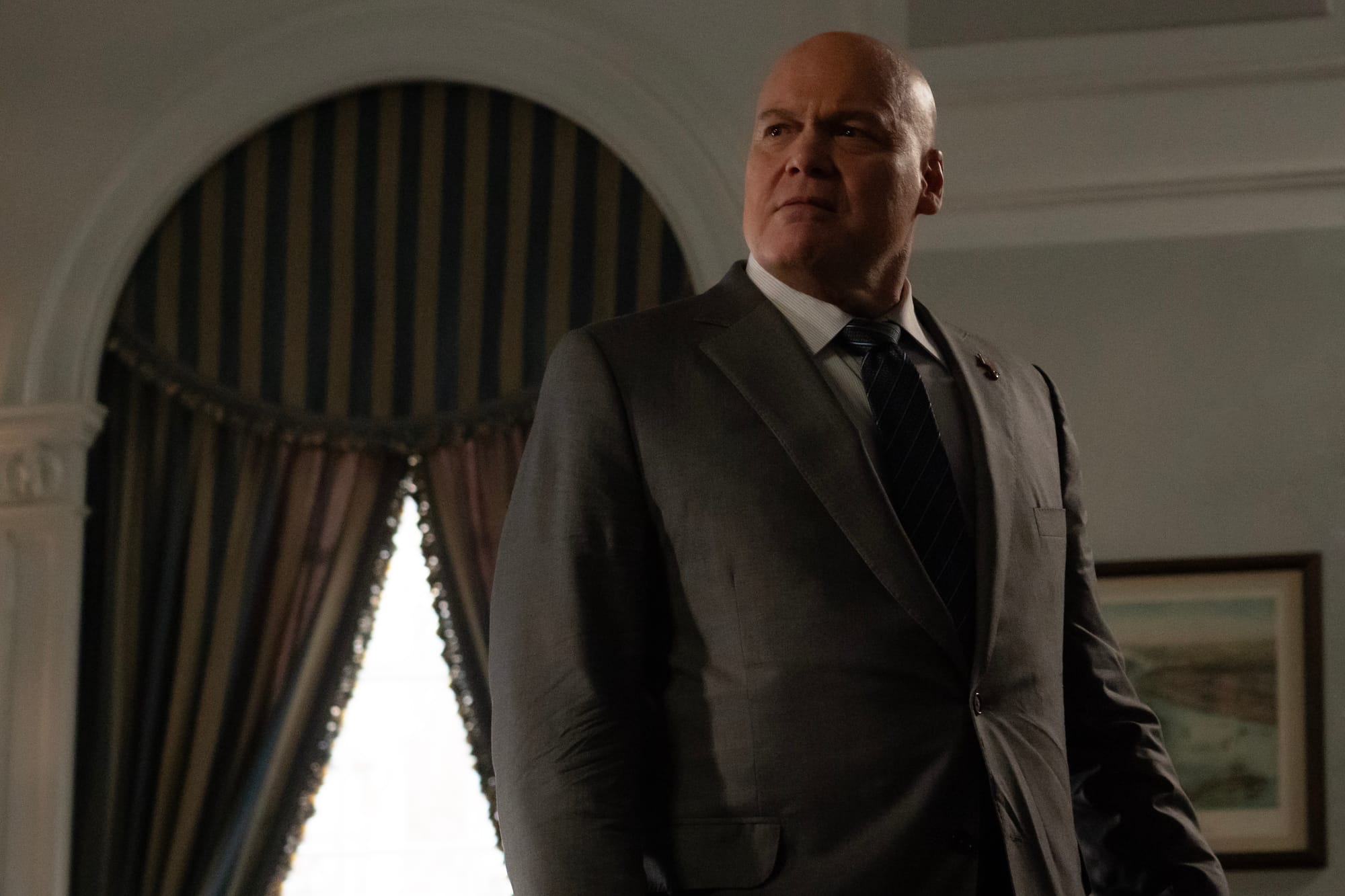
I obviously can't say a lot, I might get disappeared quickly. We're in the process of refining the cuts. We finished shooting in July. It's a really big canvas. It's really fun. It's ultimately a battle for the city that both of these characters love. There's going to be some good palace intrigue. It really kind of boils it down to almost school playground essence of two kids who fucking hate each other but also need each other. Those two characters keep giving. Those actors are phenomenal. And it's been a blessing.

Jesse Wigutow recommends: Watching Succession in a hyperbaric chamber
I recently spent some time for medical reasons in a hyperbaric chamber. You’re stuck in this chamber and you can’t bring anything in. The only thing you can do is have a TV over your head, and you have to communicate with the person outside to watch what you want to watch. So for me, there was this kind of moment of panic. Oh my god. I didn't think about what I want to watch. Now, I've got this guy with a remote, I can't scroll, and I want to ask him to scroll. I'd been meaning to re-watch and really kind of look behind the curtain of Succession. And I just rewatched season one in literally four sessions in the hyperbaric chamber. I'm just blown away by how well it's written and constructed.

